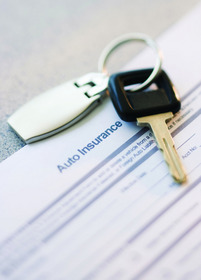MISSION, KS--(Marketwire - Jun 27, 2011) - (Family Features) Before you hit the road this summer, make sure your car and car insurance are ready for the journey. Planning ahead can help avoid mishaps that could ruin your vacation.
Whether you are traveling near or far, you will likely be lugging some valuable items such as golf clubs, a laptop or a video camera -- none of which are covered by a car insurance policy.
According to an April 2011 survey released by the National Association of Insurance Commissioners (NAIC), 40 percent of Americans incorrectly believe their car insurance will cover the replacement of personal items stolen from their vehicle.
"The truth is that these items must be covered by your homeowners or renters insurance policy to be reimbursed if they are stolen or damaged," NAIC president Susan E. Voss said.
One-third of Americans also believe their auto insurance automatically covers a rental car, according to the NAIC survey. However, this is not true, and the NAIC recommends checking with your auto insurance agent to make sure you have adequate car insurance whether driving your own car or a rental.
Top 5 Auto Insurance Tips
Confirm your car insurance is active and premiums are up-to-date. Have a current copy of your insurance card in the car.
Select liability limits that are appropriate to your financial circumstances. People with more assets generally need to select higher limits of liability than those with fewer assets. If you are found to be at-fault in an accident and purchased insufficient limits, your personal assets are at risk for the remaining financial obligation.
If renting a car for the trip, check your insurance policy to see if it includes coverage. Verify potential coverage limitations with your agent, and make sure you are not duplicating benefits from your existing auto, health or home insurance policy. (See sidebar for more tips.)
Verify your homeowners or renters insurance covers the theft of personal items from a car, especially if you are planning to carry expensive items in your car such as golf clubs, video or digital cameras or laptops.
Check to see if your insurance policy includes roadside assistance. You can be covered for towing, fuel delivery, lockout service, jump-starts and more.
If you are unclear about your car insurance coverage or would like to learn how to lower car insurance costs, visit www.InsureUonline.org or contact your state insurance commissioner. Find your state commissioner at www.naic.org.
Top 5 Car Readiness Tips
To avoid car troubles, schedule a tune-up a few weeks prior to your trip and be sure to get regular oil changes. If you want to do some basic maintenance yourself, here's what Consumer Reports recommends you check:
Vital Engine Fluids. This includes fluids for the engine, oil, coolant, transmission, brakes, power steering and windshield washers.
Hoses and Belts. You can check hoses on a cool engine by pinching them. There should be no soft spots or bulging areas. Feel for lengthwise cracks in the inner liner of the hoses. Check all belts for worn spots, cracks or shredding fabric reinforcement.
Battery. Most batteries are maintenance-free. Check the color of the small inspection window on top of the battery case. Look for cracks or holes in the battery casing. If your battery requires maintenance, make sure the fluid is up to the correct level. Fill with distilled water as indicated in the car owner's manual. Make sure battery cables are securely attached to the terminals. If your battery is more than five years old, consider replacing it -- you don't want it overheating in the summer sun.
Brakes. If your car pulls to one side when you brake, or if you hear any grinding noises or feel unusual vibrations when you apply the brakes, take the vehicle to a mechanic.
Tires. Proper tire pressure means safer driving and lower fuel bills. Follow the manufacturer's recommendations for tire pressure (usually found on a sticker on the inner edge of the door, or in the glove box.) Also check tires for adequate tread depth and for damage such as cuts or bulges.
Amid the chaos of your own personal packing, don't forget to pack an emergency kit for your trunk, just in case; and if you have roadside assistance, store the number in a handy location in the car.
Top 5 Car Rental Tips
If you're going to rent a car for your trip, make sure you are adequately insured.
- Review your auto insurance policy or call your insurance agent before you reach the rental car counter. Some policies include conditions. They may not cover rentals on business trips, for example.
- If your current policy doesn't offer coverage for a rental car, see if an insurance rider can be added for a small fee.
- Many credit cards include some level of collision and theft protection. In most cases, these benefits are secondary to your personal auto insurance or the car rental company's insurance, meaning the credit card company will only pay claims after other insurance coverage has been exhausted. The NAIC recommends you call your credit card company and ask about benefits.
- If you lack personal auto insurance and your credit card does not provide benefits, it might be wise to purchase the liability insurance and collision damage waiver at the car rental counter.
- Keep in mind that if it is a longer-term car rental (e.g., a week, a month or more), there might be limitations on the coverage your existing auto insurance policy provides. Check with your insurance company or agent for details.
Contact Information:
Wendy MacDonald
wmacdonald@familyfeatures.com
1-888-824-3337 ext. 235
http://editors.familyfeatures.com
